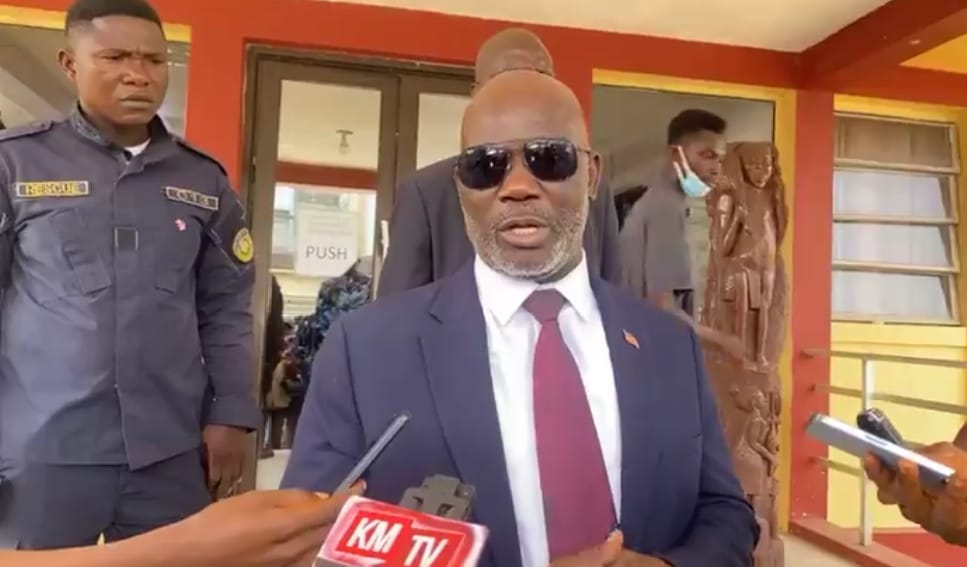Paragraph 1: The Genesis of the Dispute
The political landscape of Liberia is embroiled in a constitutional crisis stemming from a power struggle within the House of Representatives. Representative Richard Nagbe Koon, leading a majority bloc, contests the legitimacy of Speaker J. Fonati Koffa. This contention escalated to the Supreme Court of Liberia, which ruled in favor of Speaker Koffa, nullifying Koon’s speakership. The core issue revolves around the validity of legislative actions taken by the Koon-led majority bloc in the absence of Speaker Koffa. The Supreme Court’s decision has ignited further controversy, prompting Koon and his supporters to file a petition for re-argument, claiming the court overlooked crucial facts and committed substantial errors of law.
Paragraph 2: Koon’s Plea for Re-argument
Representative Koon, through his legal team, has formally petitioned the Supreme Court for a re-hearing of the case. They invoke Rule IX, Part I of the Supreme Court Rules, which permits re-argument if the court has demonstrably overlooked significant facts or misapplied legal principles. Koon’s petition argues that the court disregarded the context of his ascendancy to the speakership, particularly the majority bloc’s vote of no confidence in Speaker Koffa. Furthermore, the petition alleges that the Supreme Court overstepped its constitutional boundaries by interfering in the internal affairs of the legislature, violating the principle of separation of powers.
Paragraph 3: The Budgetary Impasse and Allegations of Judicial Misconduct
Central to Koon’s argument is the apparent contradiction in the Supreme Court’s rulings. While the court accepted the 2024 fiscal budget passed by the Koon-led majority bloc, it simultaneously declared any legislative action taken without Speaker Koffa’s presence as unconstitutional. This, Koon argues, implicates the court itself in malfeasance, as it benefitted from a budget it deemed illegally passed. Koon’s legal team contends that if their actions were unconstitutional, so too was the budget, and by extension, any disbursement of funds based on that budget, including the salaries and benefits of the justices themselves.
Paragraph 4: Potential for Chaos and Constitutional Crisis
The petitioners warn of dire consequences should the Supreme Court’s ruling stand. They argue that the decision could paralyze the government, disrupt the economic and social fabric of Liberia, and undermine the country’s stability. They express concern that enforcing the reinstatement of Speaker Koffa against the will of the majority bloc is practically impossible and would only exacerbate the existing political tension. The petitioners emphasize that the court’s judgment creates a legal and political stalemate, which could potentially escalate into widespread social and political unrest.
Paragraph 5: The Unenforceable Judgment and Call for Rectification
Koon’s legal team further contends that the Supreme Court’s judgment is inherently unenforceable, rendering it effectively void. They point to the court’s own acknowledgment that there exists no mechanism to compel the majority bloc to recognize Speaker Koffa’s authority. The petition emphasizes that Koon’s ascension to the speakership followed established parliamentary procedures after the vote of no confidence against Koffa. Therefore, they argue, the court’s insistence on Koffa’s continued speakership lacks legal and factual basis and serves only to disrupt governance. They urge the court to allow a re-argument to rectify these errors and prevent further damage to the country’s political and social stability.
Paragraph 6: The Broader Constitutional Implications
The petition for re-argument raises significant questions about the balance of power between the judiciary and the legislature in Liberia. Koon’s legal team argues that the Supreme Court’s intervention in the internal affairs of the House of Representatives sets a dangerous precedent, potentially undermining the separation of powers doctrine. The dispute also highlights the challenges of interpreting and applying constitutional provisions in the face of complex political realities. The outcome of this legal battle will have far-reaching consequences for the future of Liberian democracy and governance. The Supreme Court’s response to the petition will determine whether the country descends further into political instability or finds a path towards constitutional resolution.


